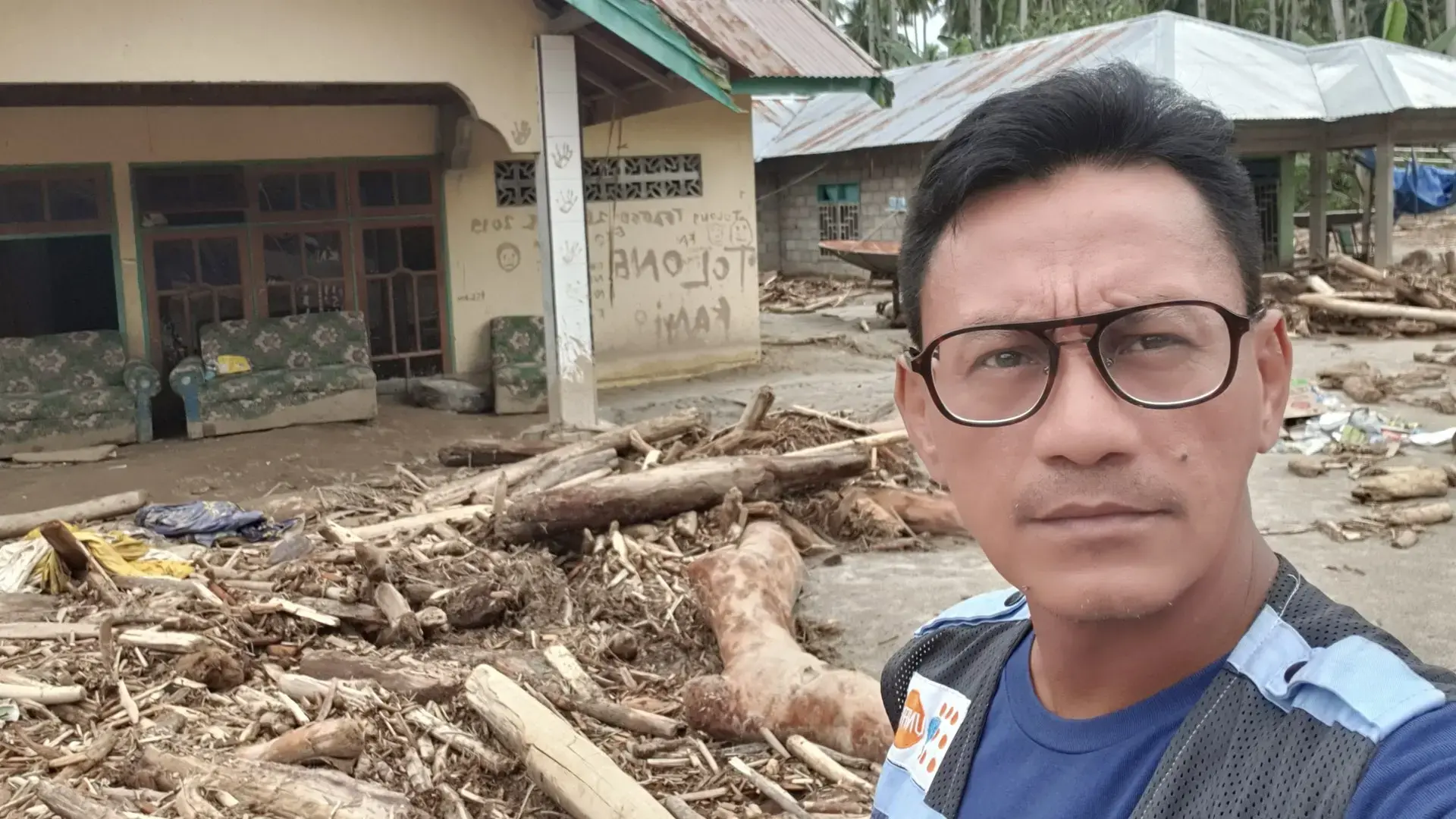Profile: Allam Amin, UNFPA Indonesia
“I am proud of what we did because I know it saved lives”
Allam Amin is a humanitarian worker who supports the most vulnerable people during emergencies and relief projects by coordinating logistics and supply chains for essential items like medicine, shelter and dignity kits.
“I am used to disasters,” Allam says. “ I grew up in eastern part of Indonesia and there was a volcano that regularly erupted.” When he was just a boy there was a major eruption that forced his family to flee. “I remember the panic in this small town,” he says. “The whole community moved to the next island all at once.”
“I remember the panic in this small town. The whole community moved to the next island all at once.”
Allam had an uncle who had learned evacuation planning in the military. “He knew what to do,” he recalls. “We followed his orders and all of us gathered together to learn what to do in a crisis.”
During one especially violent eruption, Allam recalls the dust that destroyed their food sources. “I had never seen that much dust coming from the volcano,” he says “I still remember that because of the shortage of food.”
Even with the planning of his uncle and family, food became scarce because of the disruption to normal life. “Normally everyone was eating fresh fish,” Allam says. “But during disaster time nobody is going fishing.”Allam remembers how it created extra burdens on women like his mother to provide for their families in disaster. “The women had to make sure that there was something, even noodles,” he says.
"Normally everyone was eating fresh fish. But during disaster time nobody is going fishing."
When Allam finished school he was involved in projects distributing medical equipment to the regional health networks. “The first place for us to learn about the basics is in these remote areas,” he says. “I needed to make sure that we were going to order enough supplies, especially with the budget coming from USAID. We really learned about planning.”
When a series of disasters hit Indonesia early in his career, Allam shifted to use his logistics skills in humanitarian response with UN agencies like UNICEF and UNFPA. He says the biggest barrier in disasters is the breakdown of the transport systems.
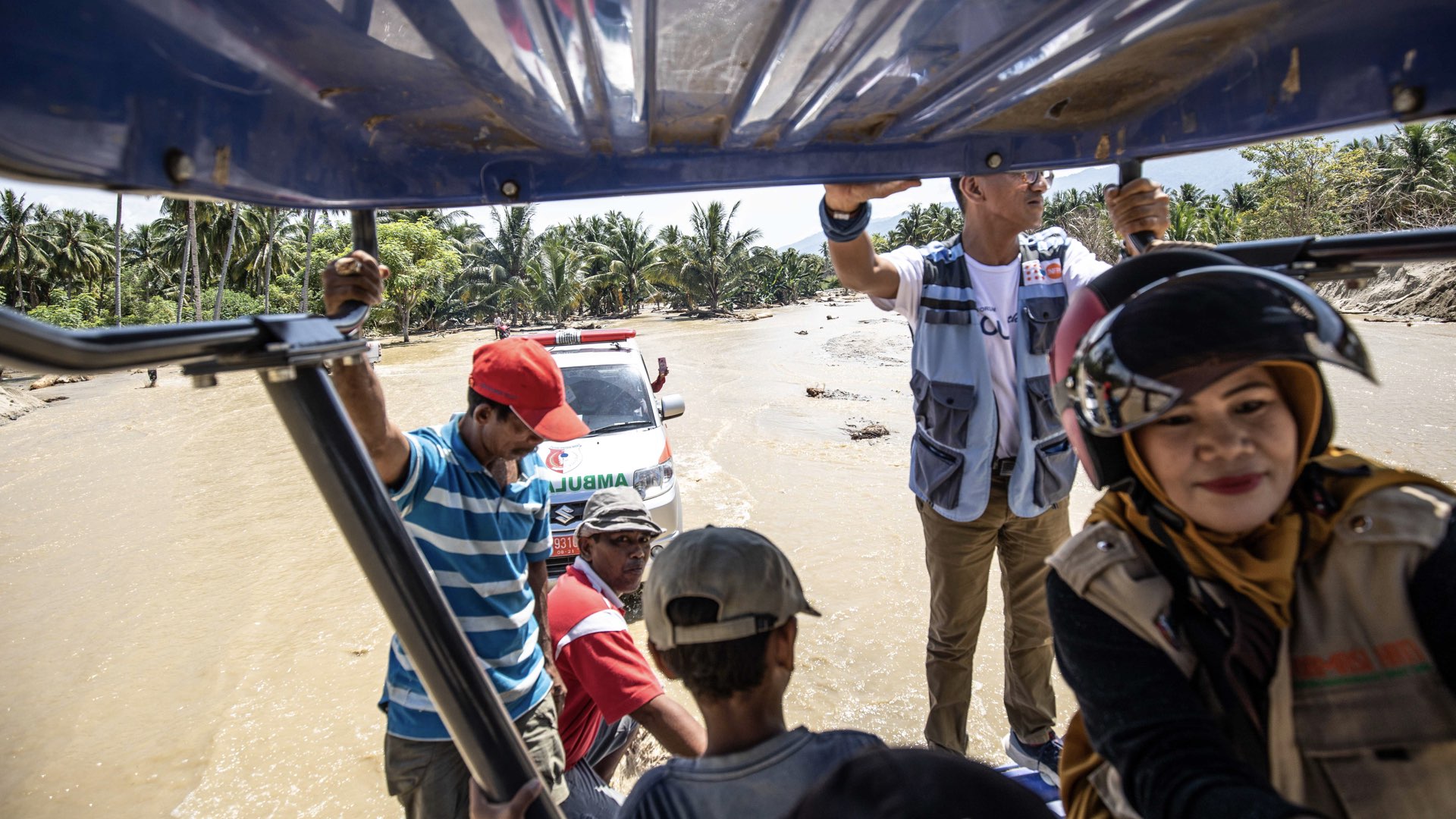
“It is the limitation of the transport system,” he says. “The airport can be broken and we can only get supplies in only from the harbor so you have to adapt.”
“It is the limitation of the transport system. The airport can be broken and we can only get supplies in only from the harbor so you have to adapt.”
He says the priority is to make sure displaced families stay healthy during the disaster or in camps for displaced people. The model of planning Allam worked on has been woven into national preparedness plans that support health districts across the country.
“We need to come up with the idea of working closely with counterparts and donors to make sure that this capacity is available any time of the year,” he says. Allam says a smart logistics system will have dynamic digital inventory that manages stock and storage with life-saving efficiency.
"Dignity Kits are not easy to store. We put it in one big box, otherwise it goes everywhere."
“The first thing is often to establish a better warehouse system,” he says. “Dignity Kits are not easy to store. We put it in one big box, otherwise it goes everywhere. They will be falling apart if you do not know how to manage the warehouse.”
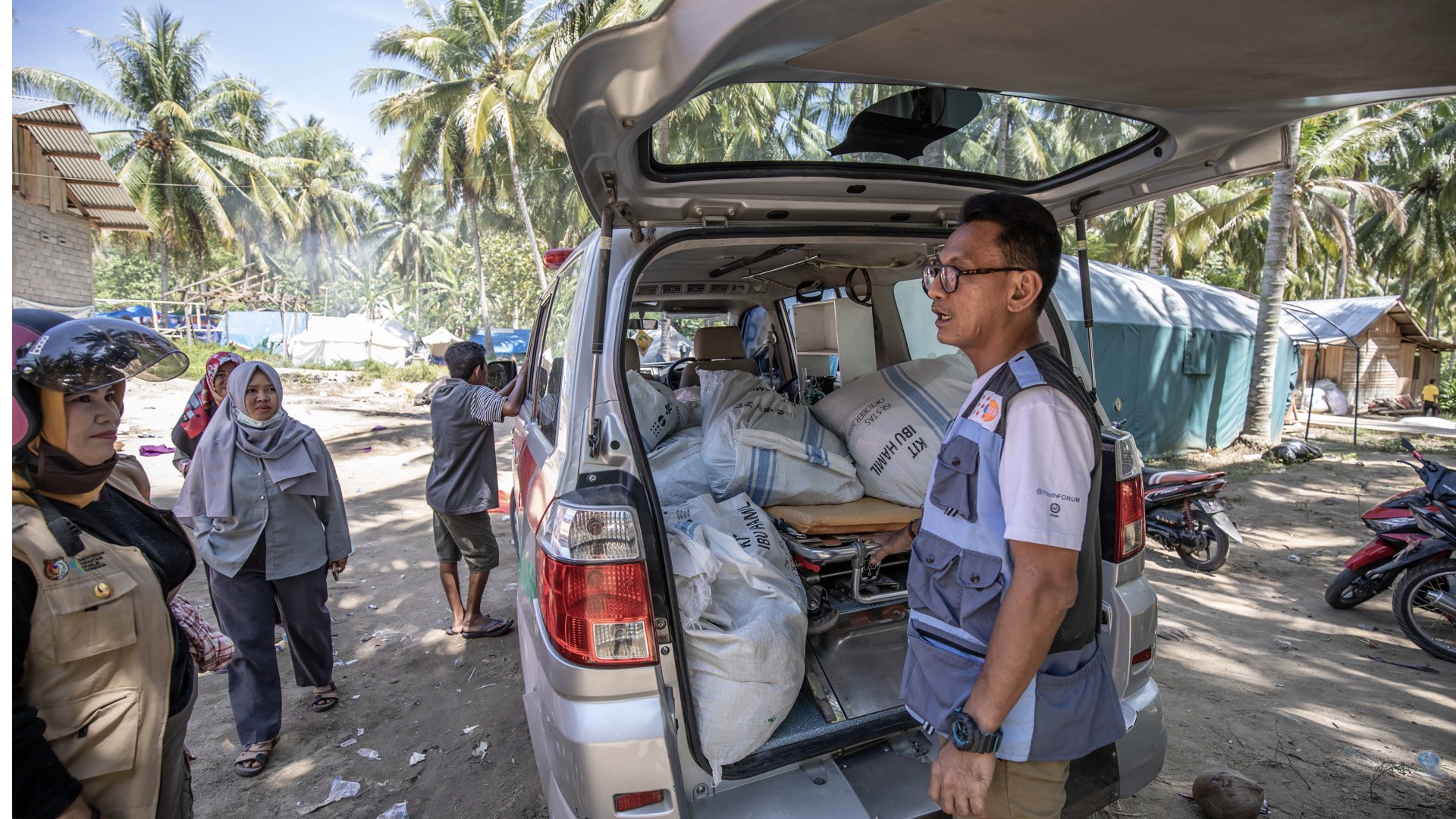
Allam has been able to combine his years of logistics experience with the additional support of a regional prepositioning network. When the earthquake and tsunami struck Central Sulawesi in September 2018, he was able to see the benefit of rapid deployment.
“Right away women and girls received thousands of kits,” he says. “I am proud of what we did because I know it saved lives.”
“Right away women and girls received thousands of kits. I am proud of what we did because I know it saved lives.”
Like everyone, Allam has been impacted by COVID-19. He is not crossing flooded rivers or knee deep in boxes at a storage depot, instead he is developing plans for how to adapt to the new reality. “I am working on a report that includes plans for how to distribute these kits doing pandemic,” he says.
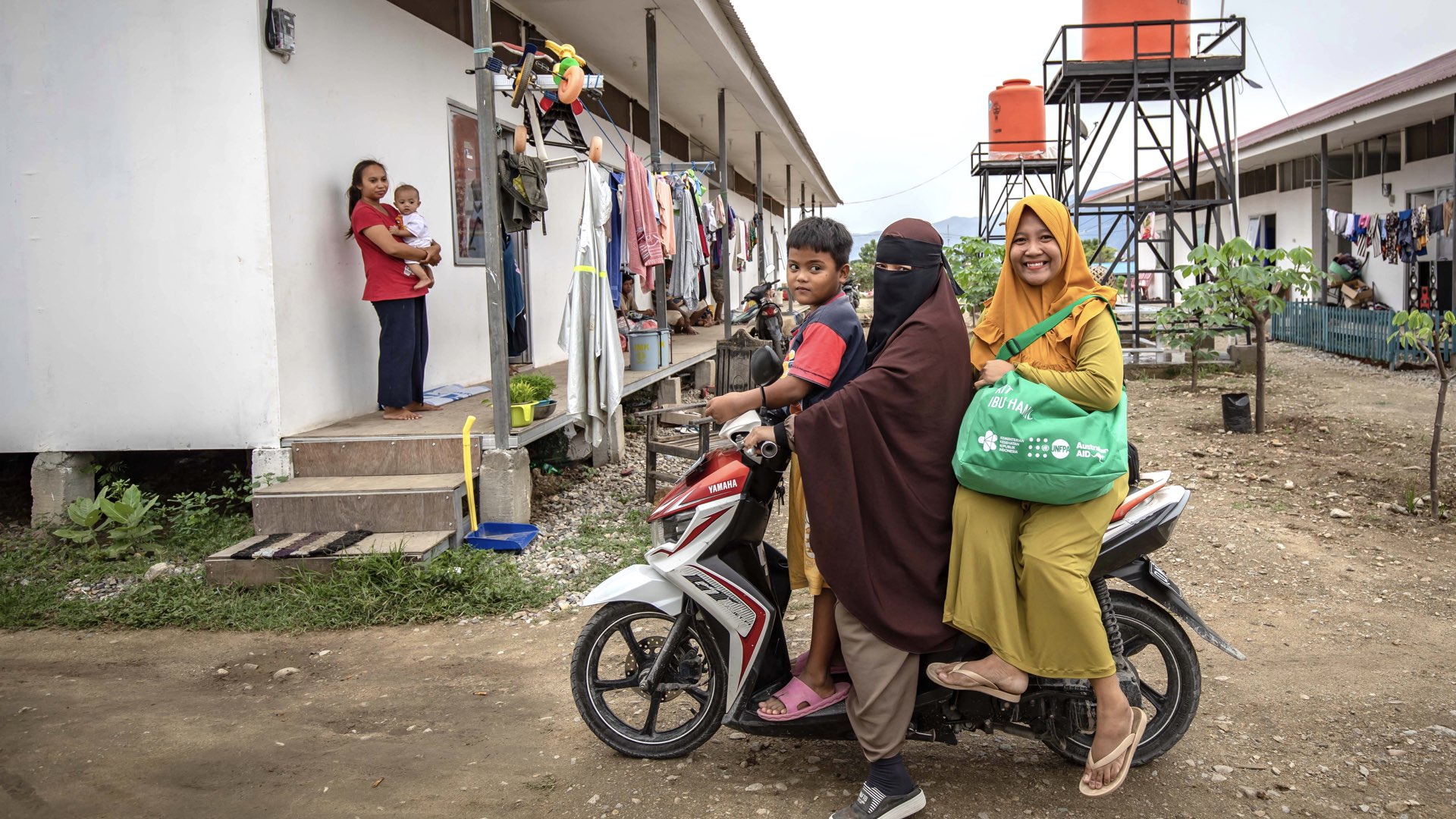
Despite the huge challenges presented by COVID-19, Allam sees real progress in the coordination of preparedness planning in Indonesia. He says the focus on women and girls comes down to planning and priorities.
“Women and children come first during emergency situations,” he says. “They are considered the most vulnerable. Now it has expanded and we have plans in place to deliver supplies to support the elderly.”
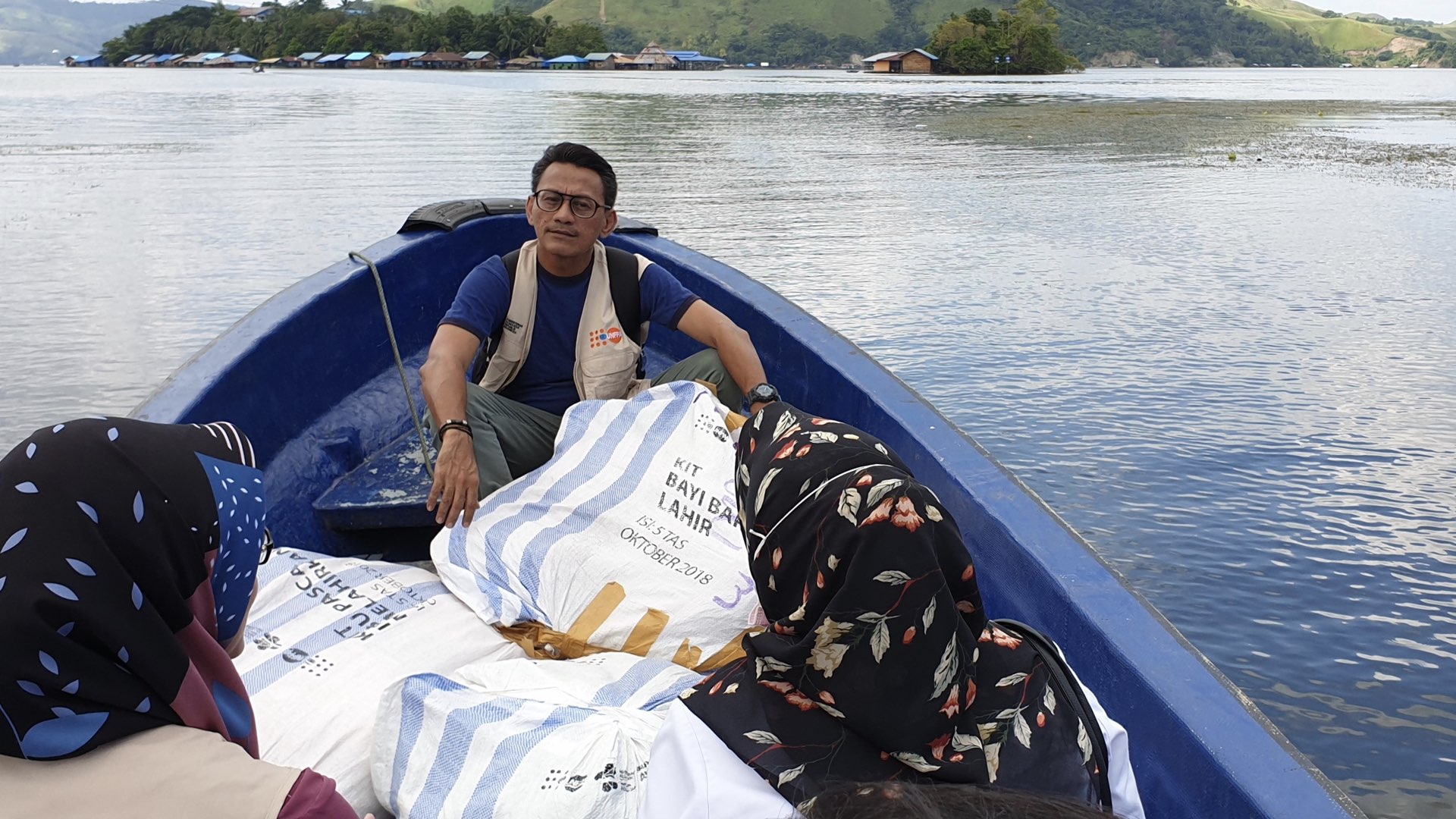
Learn more

